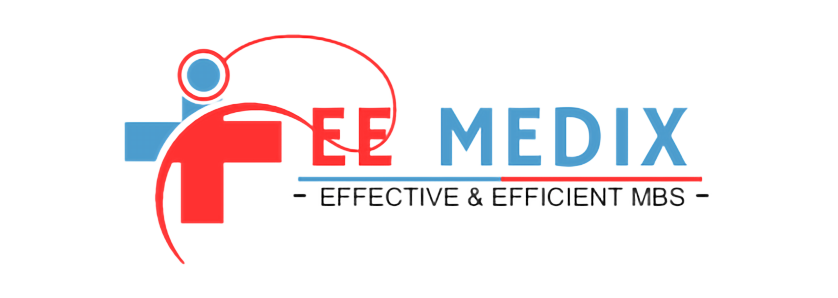In the ever-evolving world of healthcare, managing the financial aspects of a medical practice can prove to be a daunting task. From intricate coding and billing to navigating the complexities of insurance, healthcare providers often find themselves wrestling with numerous challenges that can significantly affect their revenue. This is where Physicians Billing Services come to the rescue, serving as indispensable allies for healthcare professionals aiming to streamline their billing processes, enhance revenue, and ultimately save their practice thousands of dollars.
Understanding Physicians Billing Services
1. Physician Billing
Physician billing, also known as professional billing, stands at the core of the healthcare revenue cycle. It involves the precise coding and billing processes directly associated with the services provided by healthcare professionals in outpatient or clinical settings. To maximize revenue, it is essential to have a deep understanding of medical coding, claim submission, and reimbursement processes.
2. Hospital Billing
In stark contrast, hospital billing revolves around the financial transactions of healthcare facilities. This includes inpatient and outpatient hospital services, surgical procedures, and emergency room visits. Hospital billing is inherently more complex as it must deal with both facility fees and professional fees, along with intricate coding and billing procedures.
Physician vs. Hospital Billing: Differences in Coding Systems and Reimbursement Methods
Physician billing and hospital billing differ significantly, particularly in coding systems and reimbursement methods. These differences are crucial to understand for effective financial management of a medical practice.
Coding Systems
- Physician Billing: In professional billing, the Current Procedural Terminology (CPT) codes play a pivotal role in identifying and billing specific medical procedures and services. The American Medical Association maintains these codes and updates them annually to reflect changes in medical practices.
- Hospital Billing: Hospital billing relies on the Healthcare Common Procedure Coding System (HCPCS) codes, which include both CPT and Level II codes. HCPCS Level II codes are used for products, supplies, and services not included in the CPT coding system. These codes are vital for accurate billing of hospital services.
Reimbursement Methods
- Physician Billing: Physicians often receive reimbursement through fee-for-service models or alternative payment models (APMs), depending on the patient’s insurance and the services provided. Fee-for-service reimburses based on the number and complexity of services rendered.
- Hospital Billing: Hospitals, on the other hand, receive reimbursement through a combination of prospective payment systems, such as Diagnosis-Related Groups (DRGs), and fee-for-service for certain outpatient services. DRGs categorize patients into groups for billing purposes, focusing on the diagnosis and treatment provided.
HB vs. PB Billing: Deciphering the Acronyms
Understanding the differences between HB (Hospital Billing) and PB (Professional Billing) is crucial for a healthcare practice to optimize its revenue management.
HB Billing (Hospital Billing)
Hospital billing involves complex processes that encompass both facility and professional fees. These charges may vary based on the level of care provided, the department, and the duration of a patient’s stay. Hospital billing is intricately linked to coding, compliance, and the overall management of patient accounts. Accuracy in hospital billing is paramount to ensure proper reimbursement from insurance companies and government programs.
PB Billing (Professional Billing)
Professional billing, in contrast, focuses solely on the services rendered by physicians and other healthcare professionals in an outpatient setting. It deals with physician fees for procedures, consultations, and other medical services. Precise coding and proper documentation are imperative to ensure accurate reimbursement and compliance with healthcare regulations.
The Institutional Billing Process
The institutional billing process, whether in a hospital or other healthcare facility, is a multi-faceted and meticulous undertaking. It involves several key steps:
- Patient Registration: This marks the initial step where healthcare providers collect the patient’s demographic and insurance information.
- Coding and Documentation: Healthcare providers document the medical services provided and assign appropriate codes for billing.
- Claim Generation: Claims are generated based on the documented services and are submitted to insurance companies and government programs.
- Adjudication: Insurance companies review and process the claims, determining the reimbursement amount.
- Payment Posting: Once reimbursement is received, it is recorded in the practice’s financial records.
- Denial Management: In cases of denied claims, healthcare facilities work to rectify errors and resubmit the claims.
- Patient Billing: Patients are billed for any remaining balance after insurance reimbursement.
- Follow-Up: Regular follow-up is essential to ensure timely payment and resolve any issues.
In conclusion, Physicians Billing Services play a pivotal role in streamlining the revenue cycle for medical practices. By efficiently managing professional billing, understanding the nuances of hospital billing, and ensuring compliance with coding and documentation requirements, healthcare providers can save thousands of dollars. Moreover, an effective institutional billing process is vital for seamless financial management in healthcare facilities.

